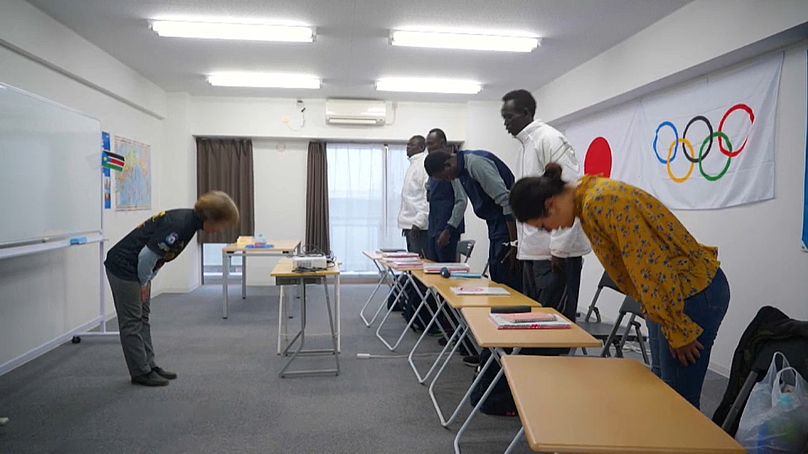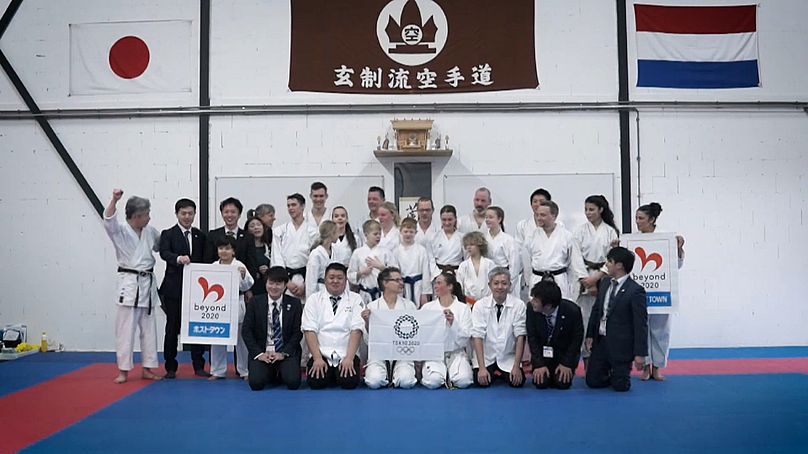Spotlight takes a look at the cities and towns across Japan fostering cultural exchanges with the rest of the world.
Spotlight takes a look at the cities and towns across Japan fostering cultural exchanges with the rest of the world.
Ahead of the Olympic and Paralympic Games next summer, nearly 500 cities and towns across Japan have built or strengthened ties with other parts of the world. While the Games have been postponed until 2021, organisers have been keen to pursue exchange programmes, including the so-called Host Town initiative.
"It's life changing...I'm experiencing an new world"
Maebashi is one of the hundreds of local authorities in Japan showing this kind of international solidarity. While some Host Towns are organising cultural or economic exchanges, this city has welcomed athletes from South Sudan, who couldn’t train because of conflict or a lack of facilities back home.
"South Sudan finds itself in a difficult situation...we thought that in terms of sport, the city of Maebashi could make a contribution, so we brought the athletes here,” explained Kazuhiko Kuwabara, Sports Division Manager at Maebashi's municipal office.
He added: “We are looking forward to the Olympics. Of course, we are going to encourage Japanese athletes but I think the pleasure will be doubled because we will be able to encourage South Sudanese athletes too."
The young Sudanese athletes have been training here since last November. Despite the postponement of the Olympics, they were welcomed to stay with all their costs financed by donations from Japanese citizens.
"It’s life changing. I’ve been training under very hard conditions…so I’m experiencing a new world, lots of things, it’s kind of an interesting time for me," said Sudanese Athlete, Kutjang Michael Machiek Ting.
Many Maebashi residents’ have been offering help, like coach Hiroshi Yoshino.
"My work as a teacher had just ended, so I agreed to help the South Sudanese athletes."
Shohei Sato, the Director of the South Sudan Support Committee says locals are doing what they can to make the athletes feel at home.
"We created these t-shirts so that the South Sudanese athletes who live in Maebashi do not feel alone or sad and that they can feel the encouragement of the whole community," he said.
'Holland Island'
Yamada Machi was devastated by the earthquake and tsunami in 2011. As a way of thanking the world for the aid it received - notably from the Netherlands - it has been dubbed an “Arigato Host Town for Supporting Reconstruction”. Recently, the town has welcomed Dutch karate athletes.
“We wanted to express our gratitude for the support we received from all over he world through the Host Towns and thus create a link…lots of people helped us build Oranda Jima House... The idea was to create an after-school club for the kids to study in," says Yamada's mayor, Shinitsu Sato.
As seen during the recent Rugby World Cup, the residents of Yamada are using the Games as an opportunity to share Japan’s unique hospitality with visitors. One way this is being done is through the traditional tea ceremony of “omotenashi”. This is seen as the embodiment of the ancient Japanese tradition of welcoming, where the host is attentive to the needs of the guest.
"We purify ourselves by chasing out incoherent thoughts, to become a person who gets to feel what the guests think, or perceive the difficulties they have," said Sohen Yamada, Grand Master of Sohen Tea School.













